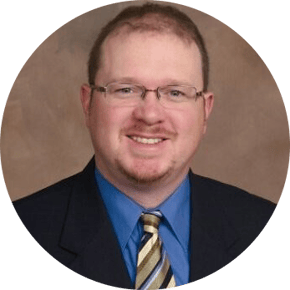They key takeaway? It's the recurring deficiencies that often lead to accreditation failures.

Accreditation management can be simple.
We developed the tools we wish we'd had access to when we were PIC's.
This year, I had the pleasure of attending the Accreditation Workshop at NASP's Annual Meeting & Expo, where multiple accrediting organizations—NABP, URAC, NCODA, and ACHC—shared both updates and insights as we look to 2025.
As someone deeply embedded in accreditation and compliance, I found the sessions particularly enlightening, especially regarding emerging requirements and how different accrediting bodies are evolving to support specialty pharmacies.
Below are a few key highlights and insights I took away that may empower organizations to meet these requirements effectively and position them to thrive in a competitive and highly regulated field.
General Updates to Accreditation Programs and Standards
The morning kicked off with an overview of accreditation programs led by NCODA, ACHC, NABP, and URAC. Each organization outlined the latest updates to their standards, spotlighting significant changes relevant to specialty pharmacies.
NCODA is a newer accreditation for medically integrated pharmacies, particularly those focused on Oncology. Their accreditation emphasizes a unique level of “Medical Integration” that requires direct access to Electronic Health Records (EHR) and total connectivity between pharmacy and provider. Membership in the NCODA organization is free and provides accredited organizations with a plethora of resources, making it a valuable asset for pharmacies in cancer care.
I was able to speak with NCDOA at a roundtable later in the conference, allowing me to ask some more in-depth questions as their accreditation is newer to the industry. I was able to gain some practical advise on how to meet their standards, as well as who may best be served by the accreditation. If you're interested in chatting about the NCDOA accreditation, you're welcome to reach out to me personally.
Membership in the NCODA organization is free and provides accredited organizations with a plethora of resources, making an NCODA accreditation a highly valuable asset for pharmacies in cancer care.
ACHC reviewed their process and provided some insights into their standard updates, released each February. Notable changes next year are related to DMEPOS standards within specialty pharmacy and updates related to USP for Infusion Accreditation.
NABP reminded attendees of the 3 key resources they offer:
- NABP’s Annual Pharmacy Law Survey. I have used this resource for 20+ years, and it really helped me when I was Pharmacist In Charge (PIC) at BioScrip. However, I have also found D2 Solutions' RegComply tool to be an excellent complement, offering real-time regulatory insights and bill tracking to stay ahead of changes as they happen.
- Policy & Procedure Review. This is offered as part of their standard fees (similar to URAC).
- Compliance Reviews. These are offered at the 2nd and 3rd anniversary of accreditation which is different than the other accreditation organizations.
URAC focused on their “Small Pharmacy” accreditation aimed at supporting smaller, startup specialty and mail-order pharmacies in achieving the necessary credentials for contracting and growing their business. They also offer a Specialty Pharmacy Services accreditation for organizations that do not dispense medications. Rare Disease certification is growing as is that business line in Specialty Pharmacy so it could be something to investigate if you focus is on rare and orphan drugs.
Building a Culture of Compliance
The second session emphasized the importance of establishing a culture of accreditation within an organization, specifically on identifying a compliance officer or coordinator role This position serves as a linchpin, managing policy oversight, data collection and analysis, staff education/training, and maintaining compliance with standard and regulatory requirements.
As a team of pharmacists and former PIC’s, the D2 team and I understand the importance of these things. That is exactly why we developed our suite of technology and consulting solutions – to support compliance teams with the resources we wish we'd had access to. D2’s ComplySuite, including AccredComply, LicenseComply, and RegComply, assist in managing critical operations for the pharmacy as well as other parts of organizational roles, so you stay accredited, stay compliant with regulations, and prevent fines and assist in maintaining pharmacy, business, and staff licenses.
That is exactly why we developed our suite of technology and consulting solutions – to support compliance teams with the resources we wish we'd had access to.
Addressing Challenges with Root-Cause Analysis
The third session used Root Cause Analysis (RCA) scenarios to address common issues specialty pharmacies encounter. In small groups, we applied RCA techniques to real-world problems, reinforcing how structured problem-solving can prevent recurrent issues. By using RCA, pharmacies can address accreditation gaps—like patient management documentation or missing accreditation tasks—more effectively. The hands-on aspect of this session highlighted the importance of proactive compliance management.
Common Accreditation Deficiencies and How to Overcome Them
This is one of the most valuable sessions I like to attend each year because it teaches you what to keep an eye out on as you manage accreditations. I recently authored an article on top the reasons for Accreditation failures with a few of these insights.
Read more » Why Specialty Pharmacies Fail Accreditations and How to Prevent It
The key takeaway? It's the recurring deficiencies that often lead to accreditation failures. I’ll be releasing an article next week on our LinkedIn about what each accreditation body had to say their biggest accreditation failures were. You can follow D2 on LinkedIn, so you don’t miss it.
They key takeaway? It's the recurring deficiencies that often lead to accreditation failures.
Interested to hear about what each accrediting body defined as their most common accreditation failures? Follow us on LinkedIn for next week's article.
Overcoming Accreditation Challenges and Enhancing Compliance
The insights shared during these sessions reinforce the value of structured accreditation support. With solutions like D2’s ComplySuite, specifically AccredComply, pharmacies can streamline their accreditation process, track compliance, and address these common deficiencies proactively.
Through these insights, I hope to encourage pharmacies to prioritize their accreditation culture, address compliance challenges strategically, and ultimately use accreditation as a foundation for quality and excellence in patient care.
If you’re interested in connecting to chat more about your accreditation journey, reach out to me at quintin.jessee@d2rx.com or through our website.



